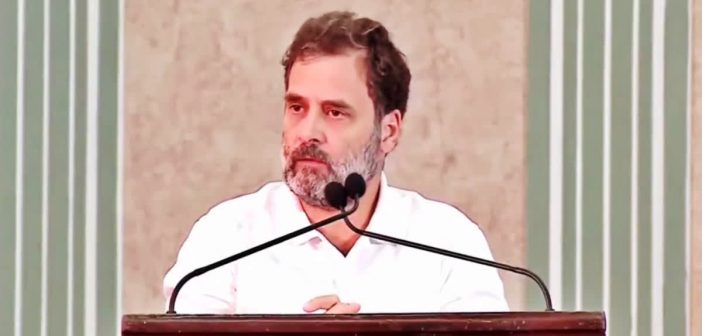In recent days, certain Indian political figures have been increasingly vocal about the restoration of Jammu and Kashmir’s statehood. These leaders argue that the abrogation of Article 370 in 2019 disempowered the region and demand that it be reversed. Among these figures, Rahul Gandhi of the Indian National Congress, Mehbooba Mufti of the People’s Democratic Party (PDP), and Omar Abdullah of the National Conference stand out as leading voices advocating for statehood restoration.
Rahul Gandhi, during a rally in Jammu’s Ramban, stated that the removal of statehood was a violation of the region’s rights and resources, and he has pushed for statehood to be restored before any future electionsMehbooba Mufti has also been adamant about reversing the changes made in 2019, labeling the current administration’s actions as a form of colonization by denying Jammu and Kashmir its democratic rights Omar Abdullah, likewise, has been a consistent critic of the central government’s policies and supports the full restoration of statehood as a means to rectify what he views as historical wrongs
However, these calls for statehood, far from being innocuous, pose serious risks to India’s national interests. By advocating for statehood without considering the strategic security gains and governance improvements achieved since 2019, these leaders could be seen as undermining the country’s territorial integrity. The central government, led by Prime Minister Narendra Modi, has pointed out that since the abrogation of Article 370, Jammu and Kashmir has seen increased development, improved infrastructure, and reduced separatist activit Restoring statehood too soon could unravel these achievements and give space to separatist elements.
Furthermore, by focusing on the statehood issue, these leaders might be seen as aligning with narratives that weaken national unity. Their insistence on reverting to a status quo that fostered decades of political instability may serve the interests of external actors, including Pakistan, which has long sought to exploit internal divisions in Jammu and KashmirThis raises questions about whether these leaders are putting regional political ambitions over national security concerns, thereby acting in a way that could be considered traitorous.
In conclusion, while the demand for the restoration of statehood may appeal to local political sentiments, it ignores the broader implications for national security and unity. By pushing this narrative, Rahul Gandhi, Mehbooba Mufti, and Omar Abdullah are prioritizing political power over India’s long-term stability, potentially acting against the nation’s best interests.






